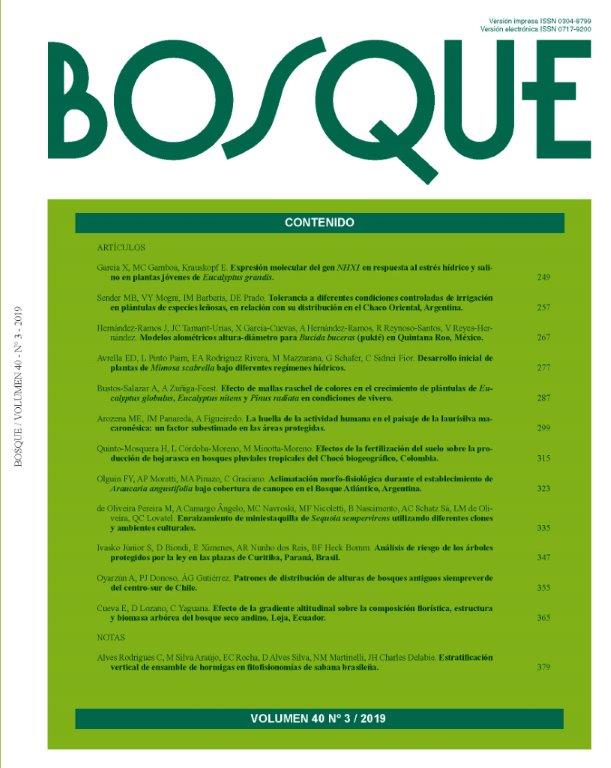Initial development of Mimosa scabrella seedlings under different water regimes
Main Article Content
Abstract
One of the main abiotic factors that influence the growth and development of plants is water, and consequently the use of water stress-tolerant species increases the chances of success of crops in these conditions. The aim of this study was to evaluate the growth and initial development of Mimosa scabrella seedlings under different water regimes. Therefore, seeds were submitted to dormancy breaking and sowed in coir fiber substrate. After that, the seedlings were established in pots (8L capacity) containing composted pine bark substrate. The treatments consisted of five levels of pot capacity: 100 %, 75 %, 50 %, 25 % and 10 %. The experimental design was completely randomized with four replicates of five plants per treatment. There was influence of water regimes in most of the variables analyzed, where it was observed that with 50 % of pot capacity growth and development of plants showed satisfactory results. Moreover, the quality of the seedlings showed that in general, with only 25 % of the pot capacity plants have the ability to survive and settle under water stress conditions. Thus, the data indicate that Mimosa scabrella is a promising species for cultivation under water deficit, since the growth and initial development of seedlings occurred satisfactorily in conditions similar to these.

